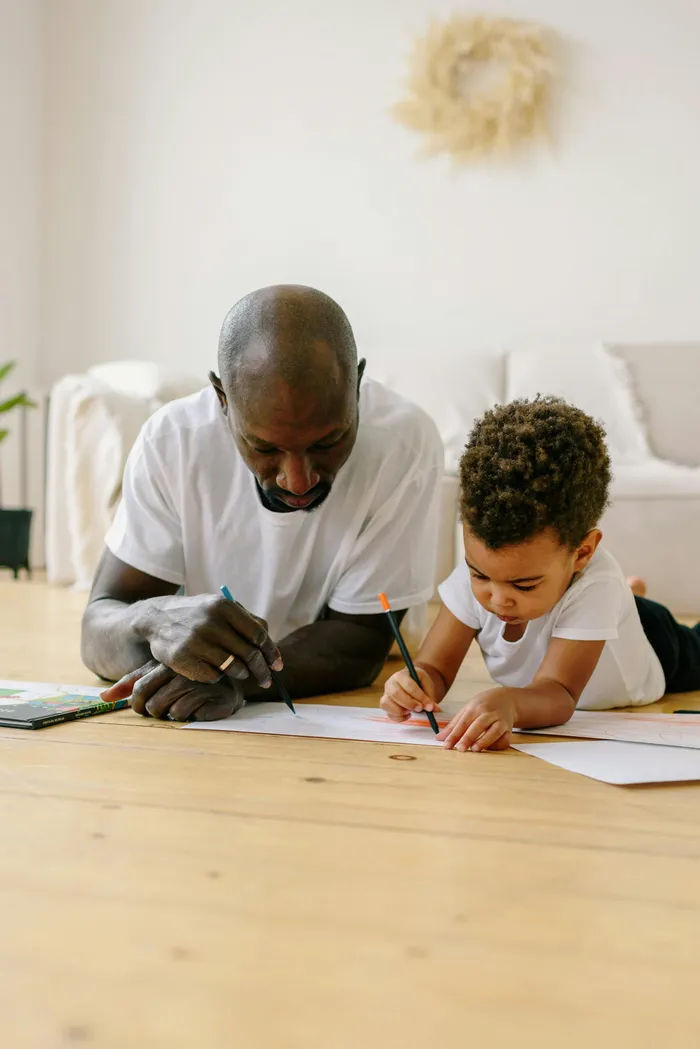The evolving role of fathers: Understanding mental health challenges in modern fatherhood
MENTAL HEALTH

Fathers who are physically and emotionally present, contribute to the physical, emotional, cognitive and social health of their children.
Image: Pexels.
For generations, the narrative of parenthood has primarily revolved around mothers and their unique bond with their children.
However, as societal structures evolve and diversify, the role of fathers has undergone a profound transformation.
Today, whether married, partnered, single, adoptive, working, or a stay-at-home father, one thing is clear: dads have a crucial part to play in the parenting landscape.
Nevertheless, the journey of modern fatherhood is not without its trials.
Pressure points
Research on the impact of fatherhood shows that 70% of fathers have higher stress with sleep deprivation, financial pressures and overwhelming time commitments topping the list of concerns.
More alarmingly, 49% of fathers feel an intense pressure to excel in their roles, yet only 39% perceive themselves as doing a commendable job at parenting.
Research also indicates that up to 25% of fathers grapple with postpartum depression, and around 23% experience feelings of isolation in their new role.
In the face of these challenges, over half of the participants in the study reported alterations in their health habits, with many exercising less, drinking more alcohol, or smoking more than before.
This significant data highlights a pressing need for fathers to prioritise their mental health.

As societal norms shift and fathers take on more diverse roles, be it as partners, single parents, or stay-at-home dads, the emotional and psychological wellbeing of fathers emerges as a crucial factor in family health.
Image: Pexels
Self-care
As responsibilities multiply, it is vital for dads to focus on self-care and healthy habits.
Here are some strategies to help modern fathers navigate their mental wellbeing:
- Seek knowledge: Equip yourself by reading books, attending parenting classes, and asking questions to bolster confidence as you prepare for the baby’s arrival.
- Get involved early: Being physically and emotionally present during pregnancy can significantly increase your connection with your child. Engaging in activities like holding, changing nappies, and bathing your baby fosters a strong bond.
- Co-parent: Where co-parenting is a viable option, lean on your partner for support. Open communication not only benefits the parents but also enhances the children’s overall wellbeing.
- Stay connected: Combat isolation by nurturing community ties and friendships. Engaging with others helps reduce stress and provides a support network vital for raising a child.
- Create a financial plan: Anticipate and manage expenses associated with bringing a new life into the world. If you have existing children, regularly review and adjust budgets to align with changing circumstances.
- Talk about it: Do not bottle up your experiences. Open up to trustworthy friends or join support groups. Sharing vulnerabilities can alleviate stress and promote better mental health.
- Create healthy habits: Prioritise rest, nutrition, and physical activity to rejuvenate your body and mind. Healthy habits can energise you for active parenting and set an example for children.
Whether you are a new father, a seasoned dad or contemplating fatherhood, investing in your mental and physical health is crucial.
Children learn valuable lessons about trust, emotional regulation and secure attachments based on their fathers' presence, both physically and emotionally.
Related Topics: